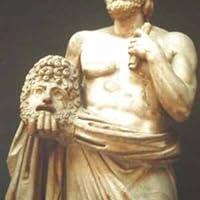
Euripides
著者について
Euripides was a classical Athenian tragedian, one of the three ancient Greek tragedians whose plays have survived. His contributions to drama include a unique style that often explored the complexities of human emotion and moral ambiguity. Unlike his contemporaries, he focused on the inner lives of his characters, presenting them as flawed individuals rather than archetypal heroes. This innovative approach allowed audiences to connect deeply with the characters and their struggles, pushing the boundaries of traditional storytelling in ancient Greece.
Throughout his life, Euripides wrote around 92 plays, of which 18 or 19 have survived intact. His works include famous tragedies such as "Medea," "The Bacchae," and "Hippolytus," each of which delves into themes of love, betrayal, and the human condition. His influence is evident not only in the realm of theater but also in the broader landscape of literature and philosophy. Euripides' questioning of societal norms and his portrayal of strong female characters paved the way for future generations of playwrights and thinkers, solidifying his legacy as a revolutionary figure in the world of drama.